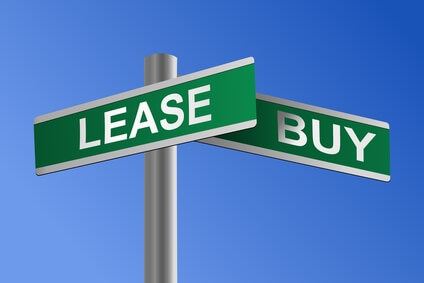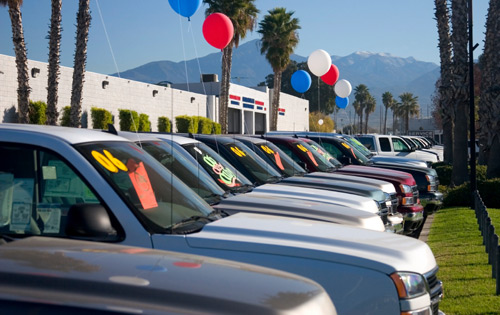
Car leasing used to be almost universally considered a bad financial decision, but in recent years, leasing has gotten more favorable for consumers who want to upgrade their car every few years instead of driving it into the ground. This has become even more popular as safety technologies like back-up cameras, lane detection sensors, blind spot sensors, parking assistance, and other useful features become more advanced, thereby improving the safety of drivers, passengers, and pedestrians.
If you want to get a new car but don’t want to put a lot of money down and/or don’t want to be stuck with the same car for 8+ years to justify the expense, then leasing a car might be a good option for you. The financial advantages and disadvantages of vehicle leasing depend on a variety of factors, including the car manufacturer, dealership, and terms of the lease (e.g., 24/36/48 months, 10K/12K/15K miles per year), to name a few. The three things you need to know about auto loans.
Problematically, many consumers focus almost entirely on the monthly payment when it comes to leasing a car, which inadvertently causes them to overlook other important matters that could make leasing a financially unwise decision. In addition to negotiating a reasonable monthly payment that fits your budget, here are some other financial considerations you should make before signing any leasing contracts. Do you understand what to know before leasing a car?
Due at Signing
The amount due at signing (“DAS”) may include things such as dealer acquisition fees, disposition fees, registration costs, security deposit(s), sales taxes, and any down payment. Oftentimes, people opt for lower monthly lease payments by putting more money down upfront, but this is more disadvantageous because you will never get that money back if the car is stolen or totaled. If you avoid the down payment and still lose the car to theft or accidents, GAP insurance will shield you against penalties for ending the lease early.

Another DAS consideration to make is the capitalized cost (or “cap cost”), which is the total amount being financed through the lease. When you enter a dealership and immediately announce your plan to lease a car, many car salespeople will price out the lease based on the full MSRP for the vehicle. On the flip side, indicating that you’re open to buying or leasing gives you more negotiating power, which can help you save money on the cap cost and thus, save money on monthly payments as well.
Cash Incentives
Does the automaker or dealership have any leasing specials? This may involve a lower monthly payment, $0 due at signing, rebates for certain groups (e.g., veterans, recent college grads) or heavily discounted warranty add-ons. As a general rule, you shouldn’t base your leasing decisions solely on advertised cash incentives because there could be something in the fine print that could eliminate any/all savings you would’ve had.
For example, a seasonal promotion advertising a car lease for just $199/month for 36 months may not be such a great deal if you take a closer look and realize it only applies to the most basic model with an allowance of just 10,000 miles per year and a down payment of $2,999 is required to secure the ultra-affordable monthly rate.
Residual Value
The residual value of a car refers to how much it’s worth at the end of the lease. For instance, 24-month car leases have higher residual values than 36-month car leases because there are fewer miles put on the car. Some makes and models have excellent residual values (60% and above), while others have terrible residual values (less than 50%).
If you lease a car with less than 50% residual value, this means you’ll incur so much depreciation on the car during the lease term that it’ll be worth 50% less than its MSRP by the end of your lease.
By opting for a car with a higher residual value (which you can easily find through the Edmunds Car Forums or by simply asking the dealer), you’ll save more money over the term of the lease.
Money Factor
Instead of paying an interest rate on a lease, you have a money factor (MF). This is based on your credit score and multiplying the MF by 2,400 will show you just how much “interest” you’re paying. For example, a money factor of 0.0017 or less is generally considered a good deal because this equates to 4% APR (or less).
Be sure to research typical MF ranges for your desired make and model before heading to a dealership, since some car salespeople have been known to mark up the money factor to earn more money over the lease term. Use Our Personal Finance Tools At myautoloan.com To Help You Make The Best Decision.
Sales Taxes
For car leases, you only pay sales tax on the cost of the lease, rather than the selling price of the car. This can save you quite a bit of money and push for $0 down may allow you to roll the sales tax into your monthly payments instead of paying sales taxes upfront (this may not apply in all areas – check your state’s regulations to see if lumping sales taxes into your ongoing monthly payment is an option).
GAP Insurance
“Guaranteed Asset Protection” (GAP) insurance is typically optional but nevertheless a good option for people leasing cars because it helps you cover the “gap” between what you owe on the vehicle and its actual cash value. If the car is stolen or totaled during the lease term, GAP insurance can protect you against early termination penalties and other potentially devastating expenses.
Should I Lease a Car?
Leasing a car makes more financial sense today than it used to, but there are still plenty of traps to be mindful of. Do plenty of research beforehand (the LeaseHackr forums are fantastic resources), contact multiple dealers to compare pricing and negotiate before physically visiting a dealership, and examine all of the financial matters involved – not just the monthly payment.
Do you understand what to know before leasing a car? Have you leased a car instead of buying one?
